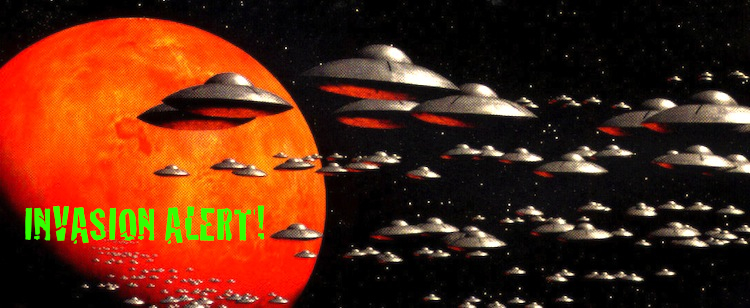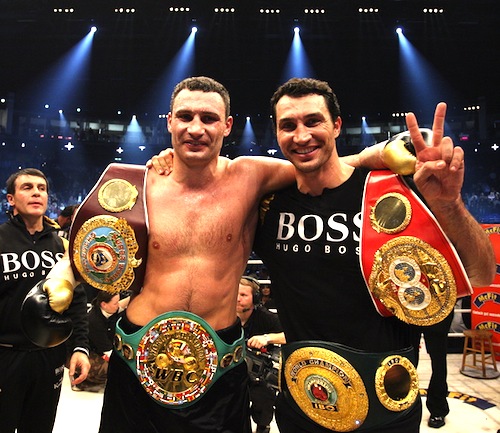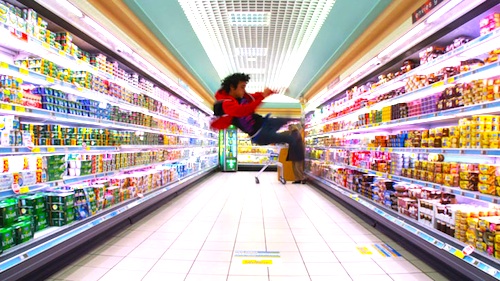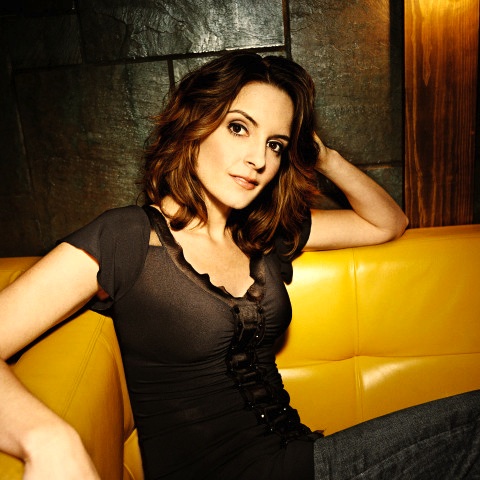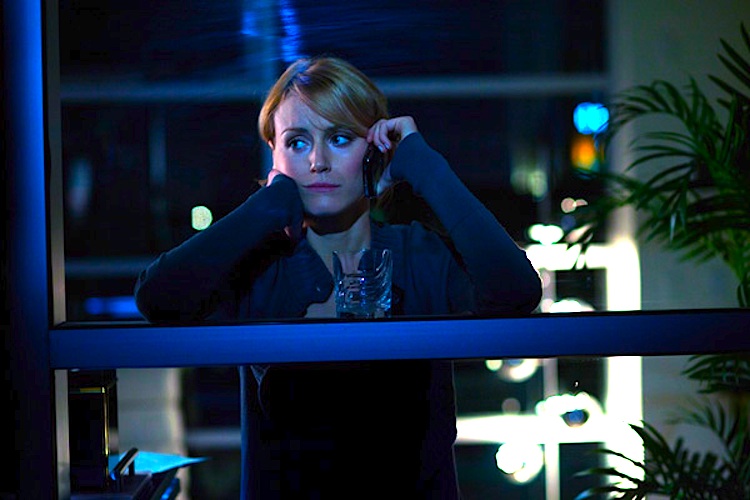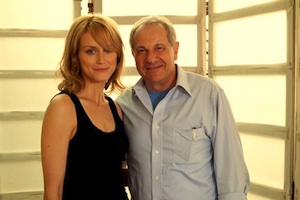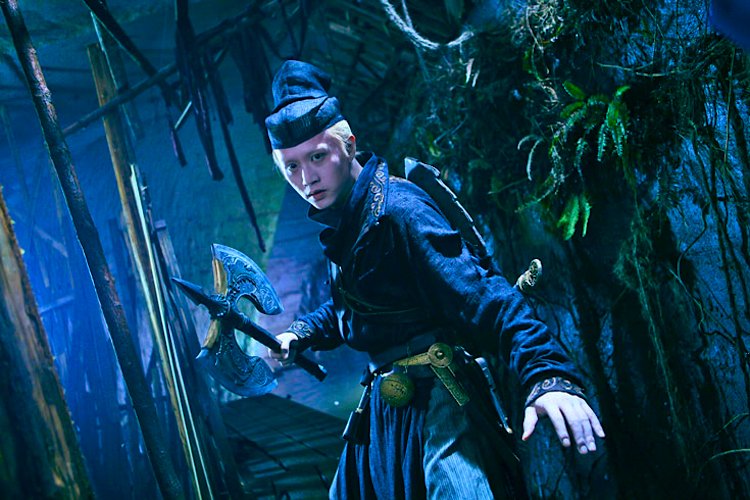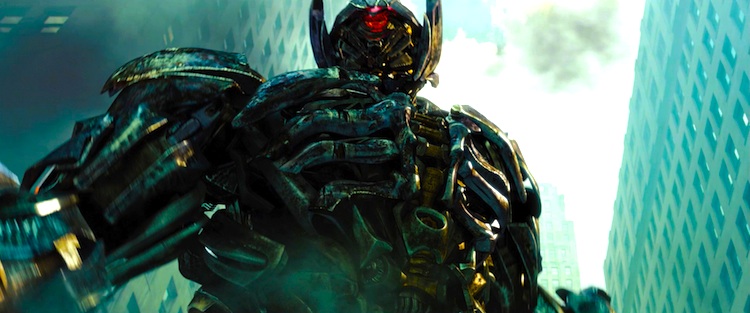
By Jason Apuzzo. • It’s been a long time since our last Invasion Alert!, but I wanted to wait until the new Transformers: Dark of the Moon trailer was out before doing another installment … and that’s where we’ll start today, with Michael Bay’s spectacular trailer to what will likely be the summer’s biggest hit. I haven’t given Michael Bay enough credit in previous Invasion Alerts! for crafting what has obviously become a highly entertaining, epic-in-scale and surprisingly emotional series in the Transformers films – the cream of the recent ‘alien invasion’ genre. How much do I like Bay’s stuff? I’ll say what most critics won’t admit to but probably are thinking – which is that the Transformers movies are likely going to be remembered as among the best ‘alien invasion’ flicks since the 1950s … whether they have their innocuous origins in Hasbro toys or not.
The great thing about the Transformers films, in my opinion, is that they’re not only enormous in scale, but they get all the human touches right – with their warm, earthy characters, realistic family dynamics, and lively sense of humor. You’ve got to be a major stick-in-the-mud to not find these movies a lot of fun. The films also have a pro-American, pro-military, middle class vibe to them – and it’s hard not to like all the campy fetishism associated with the cars, motorcycles, gadgets, military hardware, hot chicks, etc. These films indulge every high school male fantasy imaginable, but do so with stye and humor.
The other aspect of these films that stands out, of course, is their War on Terror subtext – and there is a quite palpable 9/11-quality to the new Transformers trailer, with alien invaders arriving in downtown Chicago and toppling a gigantic building, with major characters scrambling to get out of it. Am I the only one who was thinking of the World Trade Center watching that sequence?
I like that Bay isn’t flinching in depicting this type of thing on-screen. We’re almost ten years past the original attacks, and I sense that people have forgotten what a horrific day that was – and what its larger implications were for our culture. This is exactly what sci-fi does at its best: in the midst of indulging our fantasies, it reminds us of the real world we’re living in and all of its challenges.
And speaking of indulging our fantasies … what are we thinking of Rosie Huntington-Whiteley? She’s looking a little plain-vanilla/girl-next-door to me in comparison to the edgier, minx-like Megan Fox. I also preferred Ms. Fox’s blasé, cheeky attitude toward the robot mayhem; Rosie seems a little too scared in the clips I’ve seen. Just a thought.
In any case, I’m very much looking forward to Dark of the Moon – especially this cool-looking new villain (see the top of this post), ‘Shockwave,’ who reminds me of Gort. I don’t think this new Dark of the Moon trailer was quite as strong as the initial teaser trailer, and I would’ve preferred more emphasis on story than on CGI chaos, but I know the movie will be good – and probably jaw-dropping in 3D. Looking forward to it. On the news front, here’s the plot synopsis to Transformers: Dark of the Moon, here Rosie Huntington-Whiteley talks about Michael Bay’s work ethic, here she talks about wanting a wedding scene in the next film, and Bay himself talks to MTV about the film here and here.
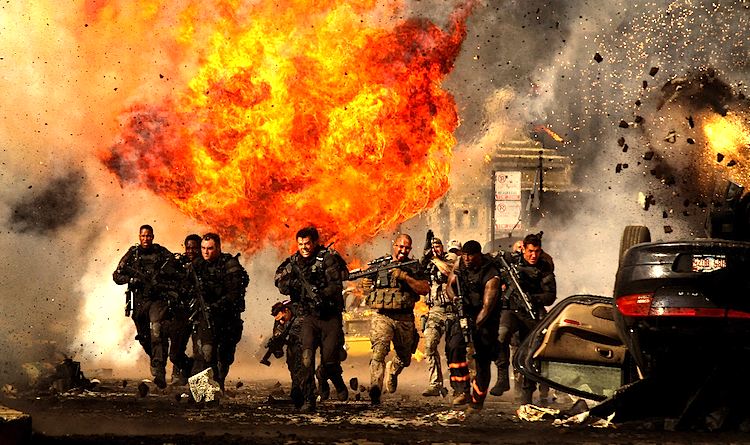
• All of a sudden Tron: Legacy director Joe Kosinski is becoming Hollywood’s go-to alien invasion guy. His new project Oblivion – about a soldier in a post-apocalyptic future who battles savage alien life forms – just picked up Tom Cruise as its star, and Kosinski’s project Archangel (about “a secret unit of the military that tracks and hunts down aliens among us”) just picked up a screenwriter. Plus, Kosinski is apparently shepherding Disney’s reboot of The Black Hole, not to mention the Tron sequels (see here and here). Continue reading Mega-Invasion Alert!: Transformers, Ender’s Game, The Martian Chronicles, Oblivion, Archangel & 3D Fish Join the Invasion!
